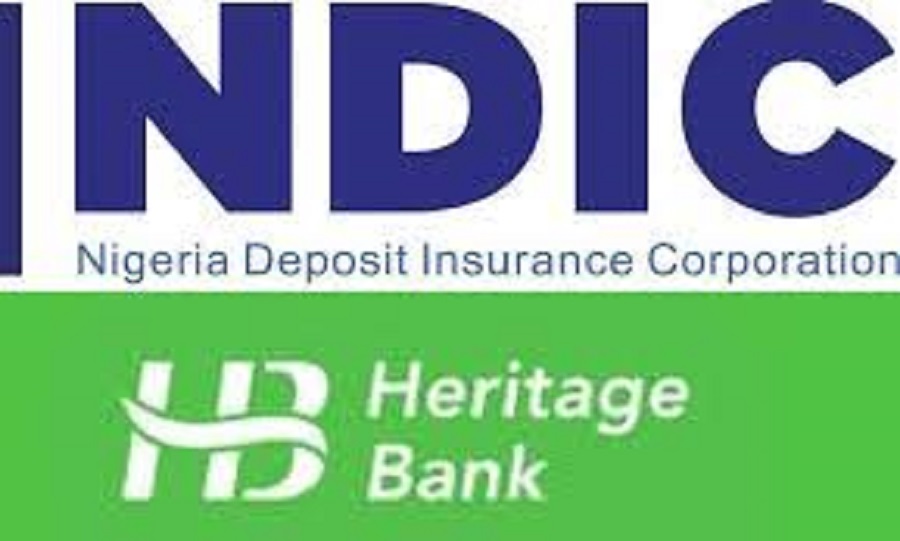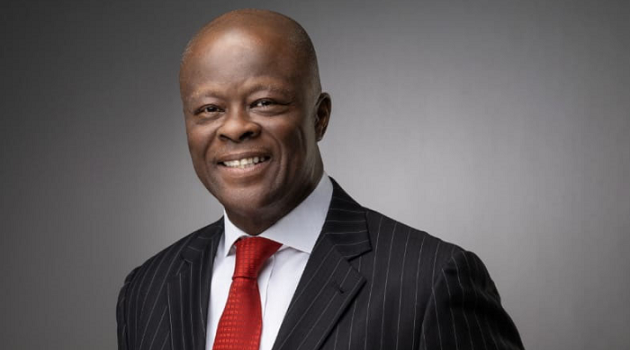E-Financial
Sparkle Launches to Change the Face of Retail Services in Nigeria

Sparkle, a mobile-first platform is launching in financial technology community and ecosystem, focused on the Nigeria’s retail sector.
Sparkle will tackle how retailers can achieve their daily objectives and scale their businesses, providing a suite of innovative lifestyle services, in addition to typical current and savings accounts that exist in the market.
In particular, Sparkle will deliver customer experience-led support services, ranging from inventory management and invoicing statements to foreign exchange services and a POS-via-mobile function.
Powered by AI and Machine Learning, Sparkle is building a dynamic community around Nigeria’s retailers and consumers, influencing purchasing decisions based on user-generated behavioral purchase data. This will actively support retailers in navigating a better route to market by directing the right consumers their way.
In a bid to drive wider financial inclusion and regulatory reform in the market, the team is also building a digital framework for retailers to register their companies, register for tax and register domains, as it looks to plug the gap in terms of business advisory and regulatory services for retail SMEs in the country.
Uzoma Dozie, Founder and CEO, Sparkle says “Retailers and consumers in Nigeria are currently disconnected; Sparkle is building the solution around its understanding of the challenges of small businesses, which will help reduce the operational risks small businesses are exposed to in their infancy.
Sparkle is a product, a community, born out of necessity for Nigeria’s retail landscape. We will connect millions of retailers on a digital platform, providing a service they can trust, that is seamless, and that allows for frictionless transactions across all activities and business services”.
“Having spent more than 20 years building out the retail arm of Diamond Bank, it is clear that there is a significant gap in the market to incubate and roll out a new approach to services for retailers, and at scale; they need a financial & business services partner, not another finance platform.
This is where we stand out from all others. Sparkle is a collaboration between retailer and customer – a support system that will ensure far greater financial inclusion and much improved access to market, built for many, built to scale”.
Set to launch in 2019, Sparkle will release plug-in APIs for the platform, to enhance convenience & service, whereby outside developers can contribute & build solutions.
The company has also entered into partnerships with Visa, Network International, as well as PricewaterHouseCoopers. They will also be working with Microsoft.
Retailers contribute 33% to total GDP and 45% of total employment in Nigeria and are a critical part of powering the Nigerian economy, however services available to small businesses have not been best suited.
Sparkle has identified lack of funding, poor access to market/network and lack of business training as the primary challenges for the sector, which is why the new platform will also provide access to mentorship and development.
Keen to pioneer diversity and financial inclusion, the Sparkle team has also identified women as a key demographic to collaborate with, as they play a key role in the new economy, with high adoption of tech to leverage on the flexibility of driving new businesses. Women are also essential in staying in touch and connecting with their millennial families.
During his tenure at Diamond Bank, Uzoma was responsible for ensuring technological innovation was central to the institution’s growth strategy.
From 2014-2018, Diamond Bank’s mobile app adoption rates grew from 206,000 to 3.3M, and he simultaneously focused on aggressively growing the bank’s retail arm to include 18M MSME customers.
He concludes, “Technology adoption is the only way retail can scale in Nigeria. We are in a new, digital economy. Retailers, individuals and businesses need the space and bandwidth to be creative and to build their business; we are building Sparkle as a wrap around for what they are already doing and we are levelling the playing field for all Nigerians, democratizing access and helping SMEs create their own luck.
Sparkle is for the many, not for the few and as we continue to build out the platform”.
E-Financial
Heritage Bank Depositors Seek National Assembly’s Help to Recover Trapped Funds

Depositors of Heritage Bank with deposits exceeding N5 million have appealed to the National Assembly to intervene and assist in the resolution of the bank’s license by the Central Bank of Nigeria (CBN).

The depositors claimed that the revocation has left them in financial distress, with their livelihoods and businesses hanging in the balance.
In a statement, the depositors expressed frustration that despite previous assurances from the CBN that the bank was not in distress, they have been unable to access their funds.
The situation, according to them, has led to widespread economic hardship with businesses shutting down, life savings crumbling, and daily expenses coming to a standstill.
The statement reads, “Some depositors have died from heart attacks, while others are hospitalized. We are at a loss, and our families are suffering.
“We are perplexed by the action exhibited by the CBN after Unity Bank merged with Providus Bank, which ensured a smooth transition of depositors. We are aware that First Bank was paid N460b of its deposits in Heritage Bank before its liquidation. Why should we be treated differently, subjected to an everlasting process to recover our funds from the sale of Heritage Bank’s properties?
“We plead that you intervene by advising CBN to pay all depositors in full without further delay. Advise that a few other banks absorb the depositors while ensuring a smooth transition as was done in the case of Unity Bank and Providus Bank.
“Utilize Heritage Bank’s reserve ratio to settle depositor’s claims. Treat depositors equally as was done with First Bank and verify NDIC’s claim of paying the insured sum to 85% of depositors and ensure prompt payment to all eligible depositors.”
E-Financial
Zumax Files N4.1Bn Suit against CBN over ‘Fraudulent’ Receivership

Zumax Nigeria Limited, an oil services company, has filed a N4.1 billion lawsuit against the Central Bank of Nigeria (CBN), alleging gross negligence and complicity in what it calls a fraudulent receivership imposed by the apex bank.

In the case, which is before the Federal High Court, Lagos, Zumax claimed that the CBN failed in its statutory duty to supervise banks and protect customers’ interests.
At the hearing of the matter on Tuesday before Justice Akintoye Aluko, Chief Wole Olanipekun (SAN) told the court that the Plaintiff (Zumax) had an application dated February 20, 2025, asking the court to hear the application.
He urged the court to allow him to move the application as the defendant had responded.
Olanipekun also told the court that the Plaintiff and defendant’s preliminary objections can be consolidated and heard together.
He stated that the priority of which application to be heard first shouldn’t arise as the Plaintiff has not opposed the hearing of CBN’s preliminary objection.
But Adeleke Agboola (SAN), counsel, counsel, told the court that the defendant has a preliminary objection in the suit, which commenced as a writ of summons challenging the jurisdiction of the court.
He argued that CBN filed its notice of preliminary objection within time and that the Plaintiff has responded to it.
Agboola said: “This preliminary objection has priority over any other applications. The Plaintiff’s application is not meritorious.
“There is no suggestion by the claimant that we did not file within time. We are saying that this court does not have the jurisdiction to hear this matter. I urge your lordship to allow us to argue this matter.
“There is no doubt that preliminary objection takes precedence; it says it must be heard first, and determining our objection is very serious; we have complied strictly by the rules.
“We urge this court to hear the preliminary objection and dismiss the Plaintiff’s application.”
In his response, Olanipekun said: “My learned friend said the application we filed is not meritorious. It is the court that can make any pronouncement on that.
“My lord, even when we talk of being tidy, we are not saying the court should not hear his preliminary objection. He is now the one saying that our application should not be heard.
“The court has to determine whether the objection has to be heard first or the Plaintiff’s application dated February 20, 2025, has to be heard first.
“It’s no longer the law; in fact, it has never been the law that when there is a preliminary objection, the court will say let’s take it first. We urge your lordship to take our application that has not been contested by the defendant.”
After listening to the submissions and arguments of both parties, Justice Aluko adjourned the case till April 22, 2025, for ruling on which application to hear first.
According to court documents, Zumax had and maintained its account with the defunct IMB International Bank Plc., which, under several mergers and consolidations of banks, ultimately fused into the much larger banking institution known as First City Monument Bank (FCMB).
The Plaintiff said it obtained a facility from IMB International Bank, an overdraft facility of N50m, which was later increased to N200m in/or at the first half of 1998.
However, the bank allegedly inflated the company’s debt and, by December 6, 2002, claimed it had risen to N465.6 million, the claim which was vehemently disputed by Zumax.
Zumax contends that FCMB, under its former Managing Director Edwin Chinye, took control of its foreign currency earnings held in a JP Morgan Bank account through its sister company, Redsear Limited.
According to the plaintiff, the Bank’s Managing Director not only insisted upon and got shares in Redsears Limited and a directorship of that company as a condition precedent for the loan, he also allegedly inserted himself as the lone signatory for the company’s bank account with JP Morgan Bank.
The plaintiff further alleged that “the bank misappropriated $ 4 million from this account, a shortfall discovered during an audit.
“Rather than addressing the dispute, FCMB appointed receivers to take over Zumax’s operations, a move the company described as fraudulent.
“The receivership, which lasted from December 2002 until 2022, led to severe financial losses, including the collapse of Zumax’s business and the loss of contracts with multinational oil companies such as Chevron.
“The company claimed it was unable to operate for two decades due to the receivership, which was based on what it describes as an entirely fabricated debt.
“Zumax further alleged that despite repeated petitions, the CBN failed to investigate FCMB’s actions or intervene to prevent the alleged financial mismanagement.
“The company maintained that a 2007 CBN report confirmed that it had paid over N547 million to FCMB, proving it was never in debt to the bank.
“Additionally, the Court of Appeal ruled in December 2021 that the consent judgment upon which the receivership was based was fraudulent and should be set aside.”
The plaintiff is seeking a court declaration that the CBN was negligent in its duty to regulate Nigerian banks.
It’s also asking for special damages amounting to $ 41 million, including lost income and asset depreciation; general damages of N2 billion, exemplary damages of N2 billion, and legal costs amounting to N100 million.
But the CBN’s preliminary objection is challenging the jurisdiction of the Court to hear the matter.
E-Financial
FG to Harmonise Fiscal Data Across MDAs

Efforts to harmonise fiscal data across government institutions have commenced in earnest, with Mr Wale Edun, minister of Finance and Coordinating Minister of the Economy, spearheading the meeting to achieve the mission.

Mr Wale Edun, minister of Finance and Coordinating Minister of the Economy,
Key stakeholders, including the Minister of State for Finance, Dr Doris Uzoka-Anite; the Accountant General of the Federation, Shamsedeen Babatunde Ogunjimi, and the Director General of the Budget Office, Mr Tanimu Yakubu, met on Monday with Edun, a statement issued by Director of Information in the ministry Mohammed Manga, said.
The said discussions centered on discrepancies in fiscal data across government institutions, which have affected Nigeria’s credit ratings and borrowing capacity.
The Minister emphasised the need for synergy between agencies such as the Budget Office, the Accountant General’s Office, and the Debt Management Office (DMO).
“Delivering accurate and comprehensive fiscal data is critical to economic stability and investor confidence,” Edun said Attendees agreed on the establishment of a Fiscal Data Coordination Framework, which includes a main committee, a subcommittee, and technical teams dedicated to standardising fiscal reporting methodologies and economic assumptions.
The Minister affirmed that Nigeria must take ownership of its fiscal data credibility, reducing dependence on external institutions.
The meeting concluded with a firm commitment to implementing the framework, reinforcing transparency, strengthening investor confidence, and enhancing Nigeria’s economic outlook.

 News2 days ago
News2 days agoPolice Arrest 4 Bank Staff over Alleged ₦270m Fraud, Money Laundering

 E-Financial3 days ago
E-Financial3 days agoUBA Grows Profit to ₦804Bn, Declares N3 Kobo Final Dividend

 E-Business2 days ago
E-Business2 days agoNIMC to Prosecute Nigerians Printing ‘NIN Cards’, Says Only Slip is Legal

 Telecom3 days ago
Telecom3 days agoOpen Access Fabrics Set to Drive Connectivity to Achieve a Digital Economy

 E-Business1 day ago
E-Business1 day agoFG Plans to Link Social Register to NIN for Humanitarian Crisis

 E-Business3 days ago
E-Business3 days agoUnleashing Nigeria’s Business Potential: The Cloud as Catalyst for Growth

 Telecom3 days ago
Telecom3 days agoMTN Nigeria and Pan-Atlantic University Invite Media Practitioners for 4th Media Innovation Programme

 Telecom1 day ago
Telecom1 day agoKeystone Bank Seeks to Join Suit in Tussle over 9Mobile Shares Ownership

























